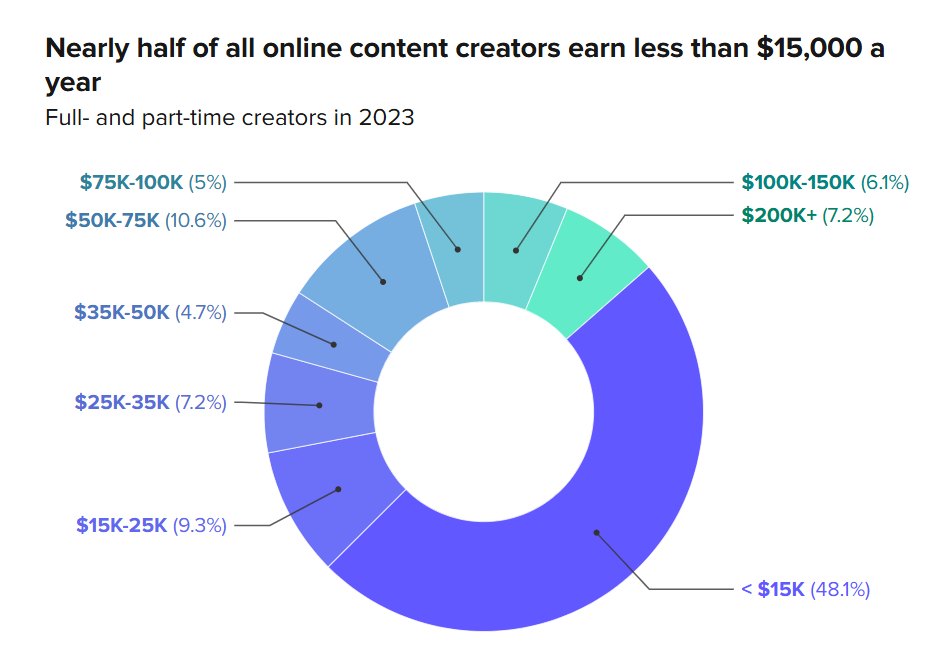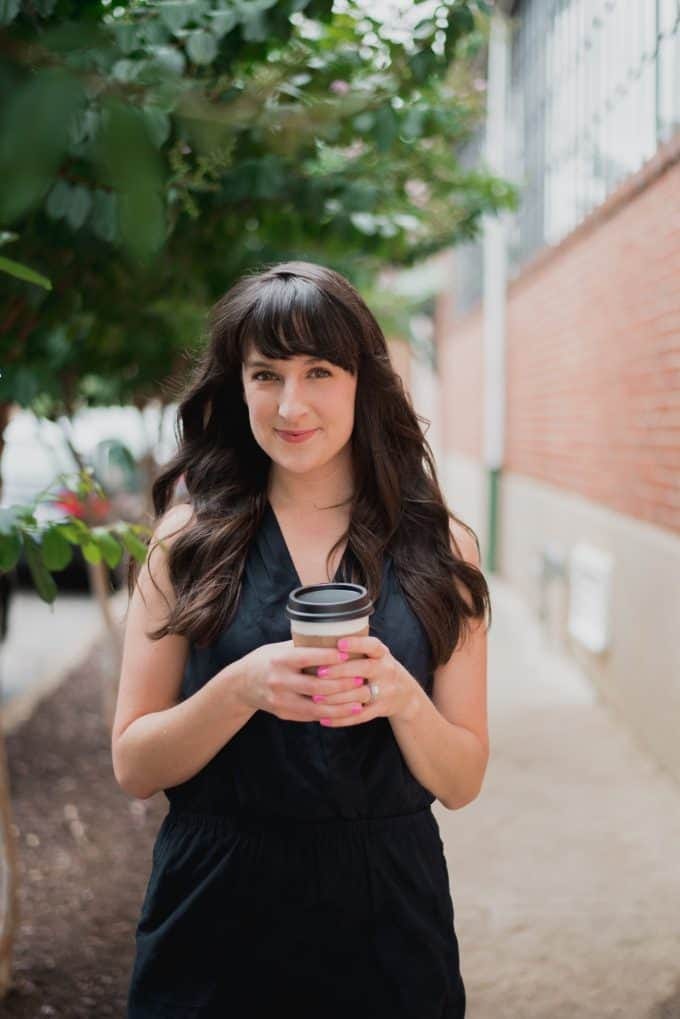Is “Social Media Influencer” a Real Job?
I sat down with a real, live influencer to get to the bottom of this
When I was a little kid, I told my parents that I wanted to be a church pastor when I grew up. They were quite pleased, and asked me why.
“Because you only have to work one morning a week,” I replied. My parents were less pleased with that answer.1
I suspect that this is sort of what kids have in mind when they say they want to be social media influencers. They love being on social media anyway. The friends, the clicks, the likes, the funny videos, seeing and being seen–why not do it for a living? It’s hardly even work!
Do they actually say they want to be influencers? You bet they do. According a 2024 Morning Consult poll, 57% of GenZers say they would be a professional influencer if given the chance. 30% of 12-to-14-year-olds say they want to be a YouTuber, with the career path of TikToker coming in at a close second with 21% of the aspirants.2
You see, you ancient Millennial, different platforms constitute different professions. So you can’t just say “influencer.”
The survey says young people would be influencers if they were given the chance. But “aye, there’s the rub” as an old influencer once wrote. One problem with this line of work (and there are several problems) is that you’re never simply given the chance. Unfortunately for social media influencers, you have to build up a following over time, which means that it can take years to start getting paid.
What we’re seeing here is kids simply wanting to do what they know. If they know social media, they want to do social media. There must be a better way.

To find out that way, I sat down with a real, live influencer to ask some questions. Should young people actually aspire to careers on social media?
My source is Liz Thomson, the creator of I Heart Vegetables and a bona fide social media careerist. On her website, Liz announces that “my goal is to help people eat healthier and live happier! Healthy eating doesn’t have to be complicated or expensive.”

Liz says: “When I first started out in 2010, it was purely a hobby; there was no way to make money. It helped me figure out which parts I truly enjoy. I love photography and recipe development. By doing it over and over, I got better at it.”
“Sports is a good analogy because you can spend your whole childhood playing and never get a scholarship. But you learn skills that help you down the road. In content creation, you learn a bunch of skills around marketing, collaboration, and communication that can really help you.”
Besides, Liz doesn’t even think “influencer” is the best word if you’re doing it all the right way.
“I resonate with ‘content creator.’ not ‘blogger’ or ‘influencer.’ It gives more freedom than ‘influencer,’ and I want everyone to feel included,” she said.
“Thinking of it as ‘content creation’ makes it easier to get started because it lets you explore the things you’re interested in without pressure. I don’t think I made a single dollar for about four years, and I was blogging three times a week, every week. You have to really enjoy it if you want to spend the time.”
“Even if you don’t end up being a full-time creator, you may discover what kinds of jobs you’re interested in. You might be interested in writing, for instance. Creating content opens doors for new opportunities and can lead to a career down the road.”
Liz’s answer made me more positive about the idea of “influencing” than I had been before. Maybe that’s because I imagined it to be pure vanity: people prancing around on screen begging for “likes,” or maybe rotting their brains and eyeballs by never escaping the hall of mirrors that is social media. Liz’s principles made the whole enterprise seem more healthy, helpful, uplifting, and not so, well, solipsistic.
For me personally, writing Paper Robots has done just what Liz said it would: I’ve gained skills, connections, and learned about the kinds of work I like to do. I’ve gotten better at communicating a message. I’ve found new avenues to teach about economics and personal finance, which is what my day job is. So instead of being a pure grump about “content creation,” I’ve learned that having an outlet for one’s “personal brand” has a place in the modern economy. It gives you a chance to build a professional voice.
But there are wrong ways to do it. It’s the dark side of content creation that I’ll be writing about in the next Paper Robots installment in a couple of weeks.
Your pre-orders got “Teach a Kid to Save” as high as #26 on Amazon’s “School-age Parenting” list last week! It’s down to #204 now, but I’m still very proud. If you haven’t pre-ordered yours yet, now is the time to do it, here. Thank you, team!
I have since obtained reliable information from real pastors that the job requires quite a bit more than that.
I asked a couple real Gen Alphas about this, while giving them a ride back from soccer practice. “Would you want to be a YouTuber?” I asked. “Eh,” said my son. “I’m not allowed to watch YouTube,” said his teammate. "What about a TikToker?” I asked. “What?” they said, perplexed. These kids are only 10 years old, and I think our parent friend group has restricted social media more than average, so these kids are not a representative sample.




My goal is to be an economics literacy influencer! I agree in the five years since I have created economic content, I have learned so much about communication, systems, business development…etc it has helped me in my 9-5 job too!
As a person who teaches a social media management degree, influencer is a rare job but social media specialist (working for an organization or as a freelancer to deliver content) is very much a practical job.